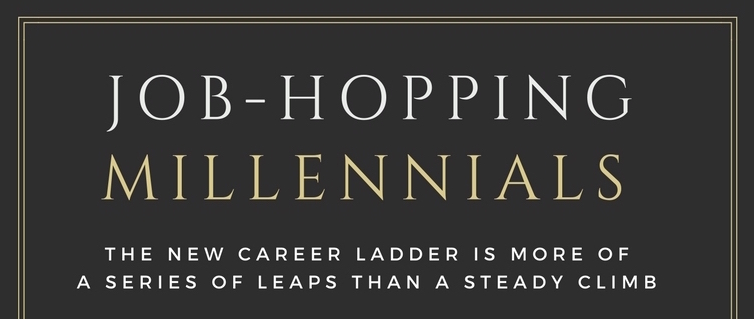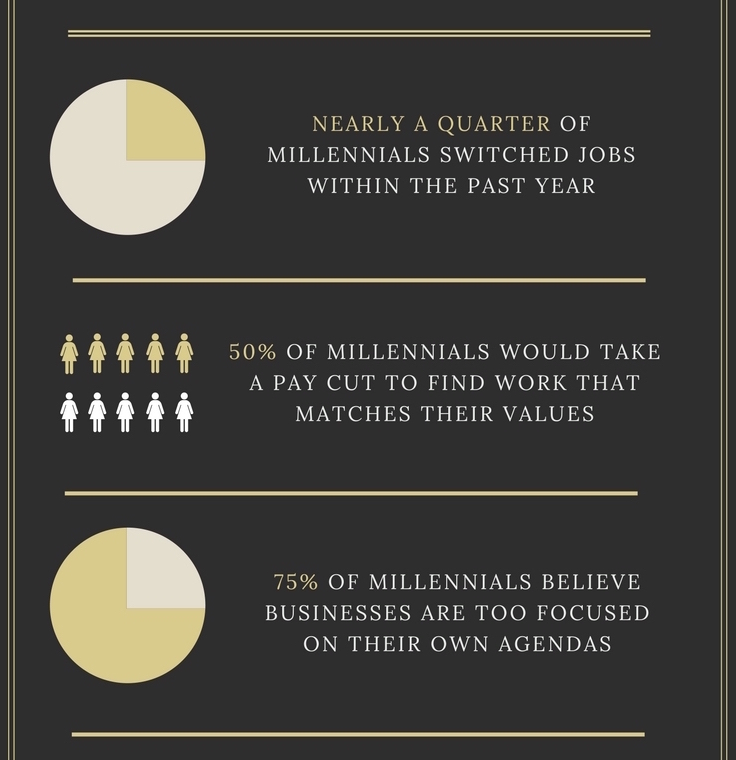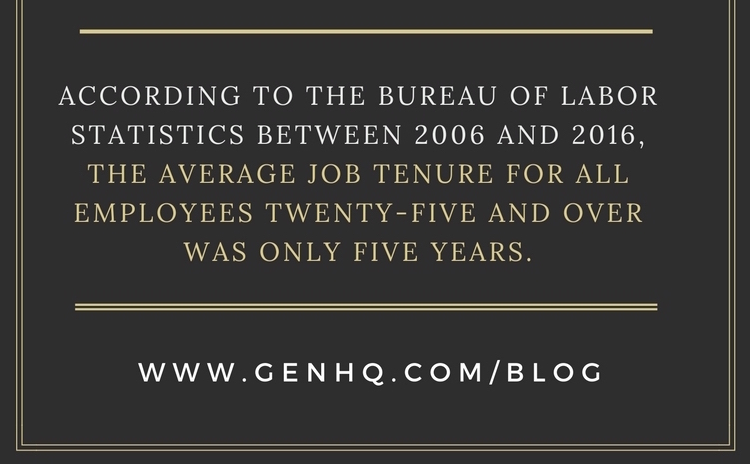There’s no denying it: Millennials expect different things from their jobs than other generations. Whereas Baby Boomers and even Gen X might have found purpose and excitement in “climbing the corporate ladder,” finding satisfaction for ascending within a company from entry-level to senior-level, Millennials prefer to see their career path as less linear and more purpose-driven.

So if a promotion doesn’t allow Millennials to feel they are succeeding in their careers, how do Millennial workers view success? A recent essay in Quartz noted that Millennials are far less concerned with traditional metrics of success, like savings and ownership, and are more focused on “purpose.” This is proven in Deloitte’s 2015 survey on Millennials which found that a full 50% of Millennials would take a pay cut to find work that matches their values, and a staggering 90% saying they want to use their skills “for good.”
Today, more than one-third of Americans are freelancers, and that number is only climbing. And, according to the Bureau of Labor Statistics, the average job tenure for all employees 25 and older was only five years. One major game-changer is the ease at which people in companies can communicate through technology. No longer is sitting in an office all day the only way to “work.” Many young workers are realizing that as long as there’s a Wi-Fi connection, work can be done from anywhere.
So what can companies do to retain Millennials who are prone to job-hopping, and create a welcoming and stimulating work environment for Gen Z, the next generation of workers? It might be up to the country on a larger scale to re-think what a “career” means overall.
The Quartz essay encourages the implementation of the “lily-pad mindset,” in which workers see their career as a series of steps between different opportunities. This will require companies to adapt, though. This includes offering more non-traditional benefits in the workplace such as professional development and opportunities to learn different skills while on the job.
Have you decided to change your job in the past five years? Join the conversation on Twitter with @WhatTheGen or @JasonDorsey. And don’t forget to add your #generation!


